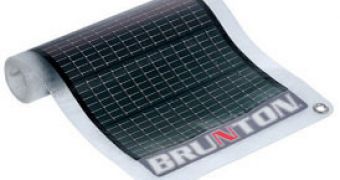Harvesting solar energy is a clever way to make use of a clean and renewable fuel. You don't need to dig the ground for it, there are no pipes and powerplants, and best of all, it's ecological. Unfortunately, existent solar cells are not too efficient and often too expensive.
A new development made by researchers at New Jersey Institute of Technology (NJIT) promises to make solar panels so affordable that people could produce them in their backyard, as lead researcher and author Somenath Mitra, PhD, professor and acting chair of NJIT's Department of Chemistry and Environmental Sciences, explains.
"The process is simple," said Mitra. "Someday homeowners will even be able to print sheets of these solar cells with inexpensive home-based inkjet printers. Consumers can then slap the finished product on a wall, roof or billboard to create their own power stations."
Though they will be easy to build, their description fullerene single wall carbon nanotube complex for polymer bulk heterojunction photovoltaic cells is a bit complicated and is actually the title of the story about this invention, featured as the June 21, 2007 cover story of the Journal of Materials Chemistry published by the Royal Society of Chemistry.
These revolutionary solar panels could eliminate large and expensive applications and some of the rare materials they require, such as purified silicon. Thus, many households could benefit from this technology, at least in sunny days, without spending too much on the panels, their installation and maintenance.
"Developing organic solar cells from polymers, however, is a cheap and potentially simpler alternative," said Mitra. "We foresee a great deal of interest in our work because solar cells can be inexpensively printed or simply painted on exterior building walls and/or roof tops. Imagine some day driving in your hybrid car with a solar panel painted on the roof, which is producing electricity to drive the engine. The opportunities are endless. "

 14 DAY TRIAL //
14 DAY TRIAL //